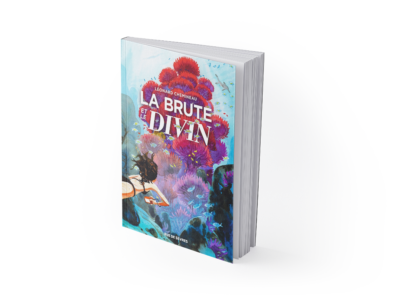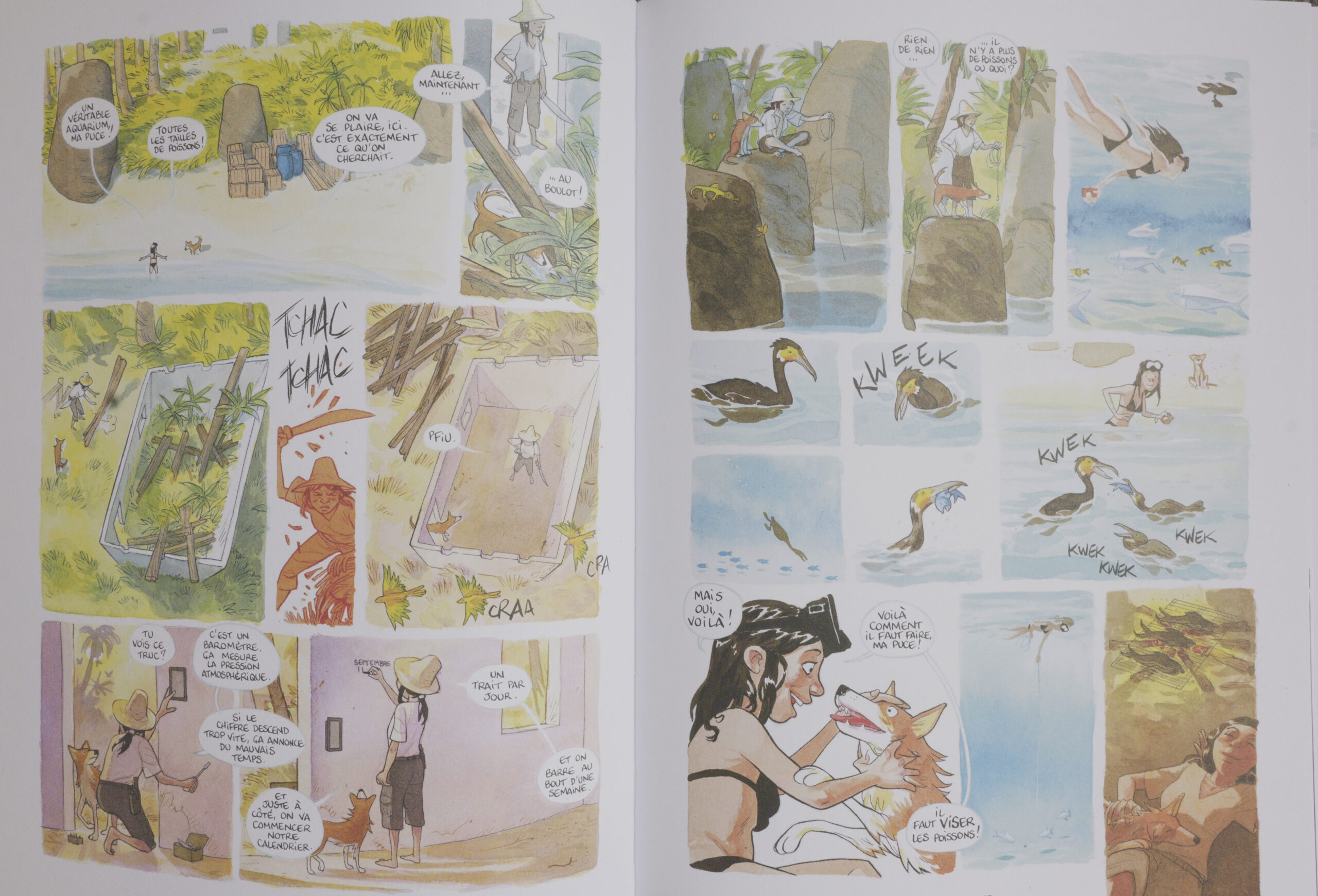Making That Life Change
La Brute et le Divin
Léonard Chemineau, Paris: Rue de Sevres, 2023, 141 pages. 22 euros.

“This is a ‘page-turner’ – purposefully so,” says the author on a radio talk show in Belgium. Léonard Chemineau was working as an engineer when he decided to pursue a more purposeful course in life: he now dedicates his time to drawing comics (bandes dessinées, in French) that, in his case, transmit an urgent message about contemporary issues such as the ‘ecological transition’ – a broad term for the move towards a more environmentally-conscious society.
Not surprisingly, the main character in Chemineau’s La Brute et le Divin, Eva Lambert, is also a corporate engineer working in #TeamEcoDesign, a department making products that are less harmful to the environment. Like the author, Eva has her own “prise de conscience”: that mind-shift when something goes tilt in the brain and you realize you need a change to feel more fulfilled in life. Post-COVID, this collective feeling resonates loudly within our society.
Eva turns down a salary raise to stay in her post and makes the move to join a program to restore a meteorological station on some forgotten French island in the South Pacific. The station is to be powered by solar energy and Eva is expected to connect and set everything up by herself. Her role also involves sending appealing images of the island’s attractiveness in an effort to lay the ground for eco-tourism after the station is up and running (Eloping to a Pacific island for tourism, love, or work is somewhat cliché: how many island romance reality shows are there?).

Eva quickly encounters survival challenges: she gouges her hand with a chisel, breaks her portable radio, a storm blows the photovoltaic panels off the roof, she is rapidly running out of canned food, … She starts to lose her mind and sets out to sea in a makeshift raft, ending up rescued by a passing ship. When she awakens from her delirium, she is recovering in the ship that is not just passing by but rather anchored to do deep sea mining exploration and exploitation for rare earth minerals.
This is an unexpected twist that gives the most poignant critique of sustainable development: our quest for technological solutions, based on research and innovation, relies on natural resources that we continue to plunder to make new, more efficient products.
The irony is not missed by Chemineau who describes how these same technologies that we are increasingly dependent upon are causing tragic environmental damage due to the devastating effects of their extraction.
Ever stop to think about where these rare earths come from and how valuable such ‘critical raw materials’ are for the gadgets we use on a daily basis, such as our smartphones and plasma screens? Ever heard of other valuable metals like: lithium, cobalt, nickel, cerium, titanium, or vanadium? These are just some of the ‘rare earth’ resources that the Chinese and others are drilling and digging for in fertile lands of Africa, the Americas, and Asia. [Read more here about China’s domination in supplying around 70% of global rare earths.]
This drilling rig in La Brute et le Divin is operated by a make-believe company inspired-by-reality called ALPHAMET, which has received government approval for exploring the seabed around Eva’s island. The stage is set for combative language and violent struggles between the islander and the enterprise: ultimately, nature prevails here by destroying the ship and the multi-million drilling robot in a tremendous storm. Spoiler alert: Eva rebuilds the meteorological station and it’s a fairy-tale ending, without the prince.
This could be a bedtime story you read to your children. It’s environmental awareness-raising in an action-driven visual-storytelling fashion that works well. It’s fast, it’s strong, it’s beautiful. Nature is both brutish and divine, too. The wreckage is the message and metaphor for things to come. Nature will continue its course, not necessarily fighting back, just responding in kind.
Stay tuned: the sequel about the nuances of eco-tourism is most probably in the works…
